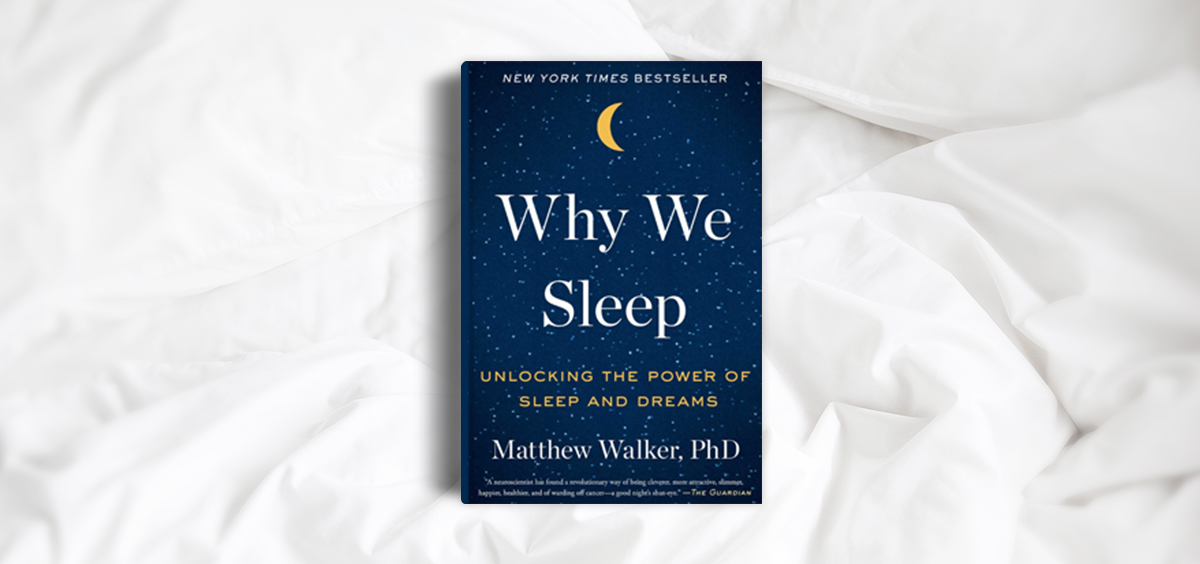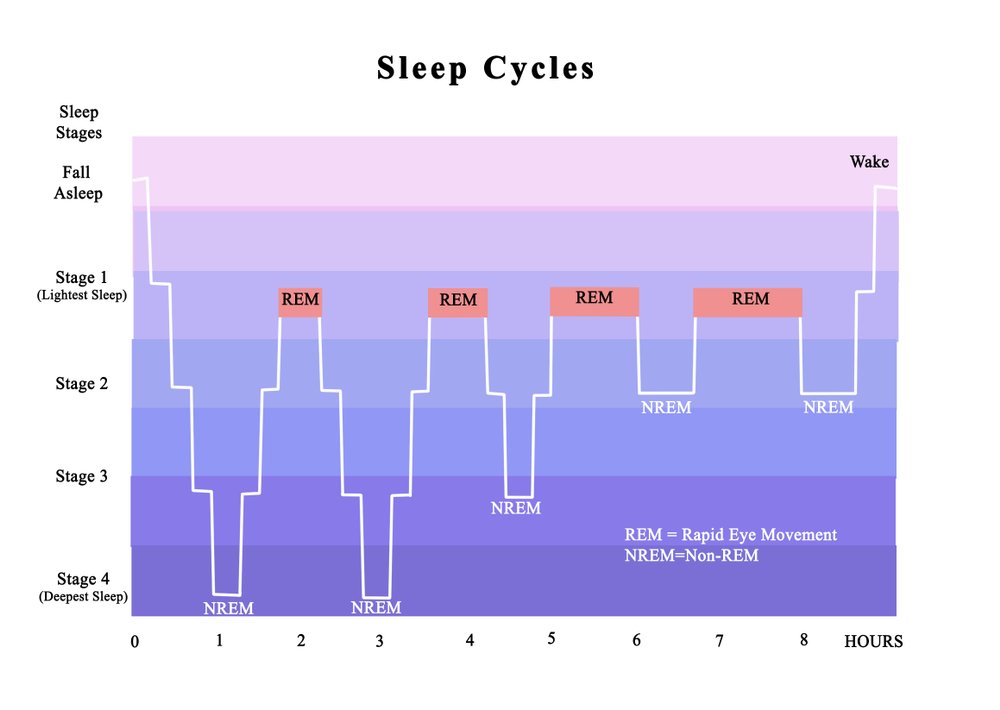Book report: Why We Sleep
Categories
Does anyone else think it odd that squirrels sleep an average of 15.9 hours per day? I guess because they're so hoppy and acutely aware it seems they're awake all the time. It's really a bias to think that animals which are alert must be more often awake and conversely those which sleep a lot must be fairly slothy. The brown bat sleeps 19 hours a day, elephants only 5 and guinea pigs 9.4. There's no obvious correlation between animal traits - size, predator/prey status, diurnal/nocturnal - and sleep amounts. But all animals sleep (even worms), though their patterns vary wildly.
Immediately as I began reading Why We Sleep: Unlocking the Power of Sleep and Dreams I realized how little is understood about sleep, both by average folks and sleep scientists. The activity we spend one-third of our life doing is rather mysterious. Humans should sleep 8-9 hours and typically climb and descend through many stages. Rapid Eye Movement (REM) sleep is the phase in which we dream, it induces paralysis and is thought to exercise the creative cortex. Non Rapid Eye Movement (NREM) sleep exhibits much less brain activity and offers physiological recovery and memory organization. During NREM sleep our brain gathers the perceptions of the day and organizes them into meaningful groups. It's like defragmenting your hard drive every night, then turning the computer off and back on to have full, active memory to start learning the following day.

You can see from this hypnograph that we have more NREM sleep early in our cycle and the majority of REM sleep later. This is significant because shortened sleep sacrifices REM sleep more than NREM sleep. It's why I feel stupid after a bad night's sleep. We can't recover this sleep by taking a nap later in the day - it can only be achieved with a full 8-9 hour cycle.
Also interesting in the book was the outline of circadian rhythm. Each of us has a genetically determined internal clock. It averages 24 hours and 15 minutes, the overage designed to offer some surplus in order to adjust with the seasons. Some of us are morning larks and others are night owls. My wife can't truly fall asleep until about 1AM, while I pass out at 10 and pop up easily at 6. Our society is biased toward the morning larks, and we often accuse the night owls of laziness when in fact they are born as such. In evolutionary context this is logical; survival is a round-the-clock team effort so it's important for some members to be alert at different hours of the day. Additionally, we're biologically biphasic in our sleep pattern. This is why all of us experience a dip in alertness in the afternoon. Many mediterranean and asian cultures operate on this schedule, dividing their work day into mornings, lunch/naptime and evenings. Many of you kindergarten teachers follow the same pattern (or your students do). And considering the bias toward early work days, you are better off as a teacher to be a morning lark and I'm empathetic if you're a night owl.
Our primate predecessors sleep arboreally to avoid nocturnal ground predators and blood-sucking arthropods. Avoidance of such threats is wise, but sleeping in a tree posits the concern of gravity and a deadly fall. As such, tree-bound apes do not experience much REM sleep. Homo Erectus transitioned to terrestrial sleep with the advent of fire (the flames keep the predators at bay and the smoke deters the lice!) In REM sleep the body is paralyzed, so sleeping on the ground is safer under such conditions. With this transition came an evolution toward REM-rich sleep patterns. Homo Sapiens average 25% REM sleep compared to 9% REM sleep in other primates. REM sleep is theorized to exercise and improve the creative cortex of our brain, and Dr. Matthew Walker suggests this evolutionary change in our sleep allowed for the improved social communication skills which eventually led us to massively complex cooperative societies. In a nutshell, we have advanced exponentially because we developed the best sleep pattern in the animal kingdom.
Most fish sleep unihemispherically - half the brain at a time and alternating. This is because they have to keep swimming and cannot do so under the full paralysis that comes with bihemispheric sleep. When fully awake the brain operates in unison, but when it's time for sleep the two sides uncouple. FASCINATING! This also precludes them from REM sleep, leaving them only with NREM sleep. I guess that's why they aren't very creative.
Birds can sleep with one or both sides of the brain. When sleeping in a group the birds will line up, and all the birds in the middle experience full-brain sleep while the two birds on each end keep one half brain active and one eye open! At some point those end birds will stand up, rotate 180 degrees and switch brains and eyes. I would love to see that on video.
I wanted to share all this because it's incredibly interesting but also because it offers seriously useful knowledge. Sleep is not a bank account but a very necessary daily cycle upon which our health and efficiency rely completely. Both you and your students should be aware of the details of the process and conscientious about executing it properly.
For instance, someone once told me melatonin helps to sleep. Actually melatonin tells your brain it is time to start winding down to prepare for sleep, but it does nothing to encourage the actual action of sleep. On the flip side, coffee does not stimulate alertness or "wake you up." Caffeine attaches to the very receptor that interfaces with melatonin - meaning you aren't more alert you are simply less aware that you're tired. And in fact when you are sleepy your brain does not perceive as well as when fully charged so you are in a partially catatonic state. Like when you're trying to stay awake to drive on a long trip you are actually in a form of waking sleep. Scary! This is why sleep-deprived auto accidents are twice as common as chemically-influenced accidents.
And most importantly, once you lose sleep you can never get it back. It's not possible to sleep 24 hours and then function fully for 72. It's so important to sleep 8-9 hours every night and to follow the signals your body gives throughout the day when it asks for rest, even two minutes of quiet meditation. This enables you to learn more acutely, to be better at work, to live longer. Getting full and quality sleep as often as possible is as or more important than nutrition, yet we tend to ignore it because it's a passive activity.
The book is as useful as it is entertaining. I highly recommend it.
Here are a few classes related to this topic:
 Strategies to Improve Schoolwide Health and Wellness
Strategies to Improve Schoolwide Health and Wellness
 Mindfulness in the 21st Century Classroom
Mindfulness in the 21st Century Classroom
 Embracing Grit: Teaching Students to More Than Persevere
Embracing Grit: Teaching Students to More Than Persevere